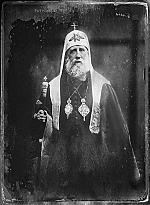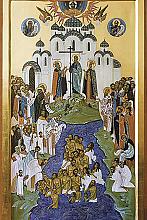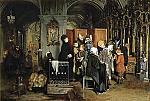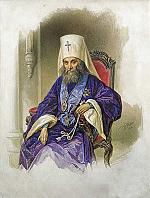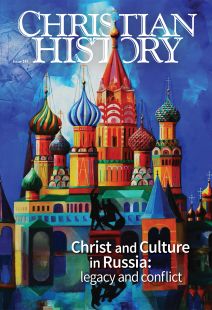Editor’s note. Christ and culture in Russia
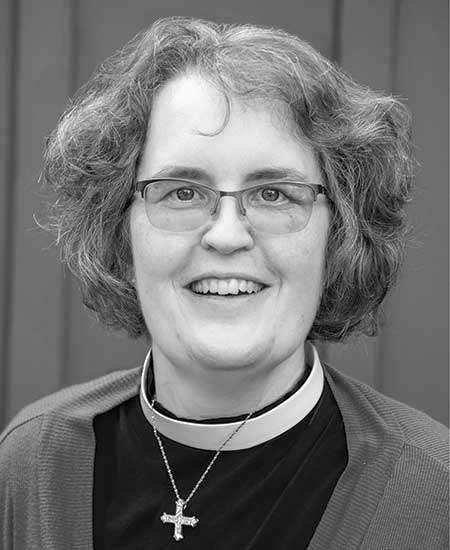
[Jennifer woodruff Tait—photo by Catherine Tait]
Part of editing a magazine about Christian history is that it is, well, about Christian history. If you look back over our last 40 years of issues, you’ll find stories about times far in the past and people far away. While we have been inspired to choose a topic because of current events—like our series connected to the five-hundredth anniversary of the Reformation, or a future issue we’re contemplating on the sixtieth anniversary of Vatican II—we usually shy away from confronting current events head-on.
This issue is an exception. It does reach back into time—in this case, the past few centuries. But a current event, the Russian invasion of Ukraine, inspired Chris Armstrong, our executive editor, to propose this topic. Unlike many topics we cover, however, the history of this event is still being written as we speak, and some of the articles that follow make connections between what went on “once upon a time” and what is going on now.
What we may not have known
When that invasion happened, I suspect that—at least if you are, like me, a North American Protestant—you may have realized how much you did not know about the history of Russia’s relationship to Ukraine and the relationship of the Russian Orthodox Church to that story.
Chris wanted this issue to serve two functions. One is to educate about Orthodoxy in Russia in a broader sense—its roots, what its worship looks like, some of its famous theologians and leaders, and the influence of the church on popular culture. In that, it serves as a long-overdue follow-up to our issue #18 from 1988, called “The Millennium of ‘Russian’ Christianity.”
Those quotation marks that we put around “Russian” 35 years ago are important, though, because the second purpose of this issue is to give readers the complex context for today’s headlines and to provide a helpful reminder that Westerners lump all sorts of things under “Russian” that are not a part of contemporary Russia—including the very Christianization of the Rus’ people in 988, which, after all, took place in Kyiv long before the countries of either contemporary Russia or contemporary Ukraine existed.
As I read the articles and consulted with our scholars, though, a third main emphasis came to my mind—the trauma in religion and culture caused by the Soviet era, from the revolution in 1917 to the dissolution of the Union of Soviet Socialist Republics in 1991.
As a child of the 1970s and a card-carrying member of Generation X, I well remember growing up hearing stories of the terrible things that happened to Christians in the Soviet Union. It seemed in my childhood that the Soviets would always be in power. And then—it felt so sudden at the time—they were not. How do you piece back together the culture that once existed in the face of years of devastation? How do you practice faith after decades of official atheism? The various answers to these questions are deeply connected to the regime of Vladimir Putin, the role of the modern Orthodox Church in Russia, and the battles that rage even as I write.
When I was speaking with Sergei Chapnin for the interview that appears on pages 49–51, I asked him where he is located. (With Zoom, of course we can now be anywhere and still see each other’s faces!) He mentioned that he was in New York, had come to the United States from Russia before February 24, 2022, and hoped to return. “I suppose the Russian emigres in 1917 thought they would be back soon,” he added, “but their grandchildren are still living in America.” (You can read about some of those emigres on pp. 34–37). Truly this is history that is still being written. Pray for peace. CH
By Jennifer Woodruff Tait
[Christian History originally published this article in Christian History Issue #146 in 2023]
Jennifer Woodruff Tait is managing editor of Christian HistoryNext articles
Persecution and resilience
The Russian Orthodox Church and the Bolshevik Revolution
Scott M. Kenworthy



